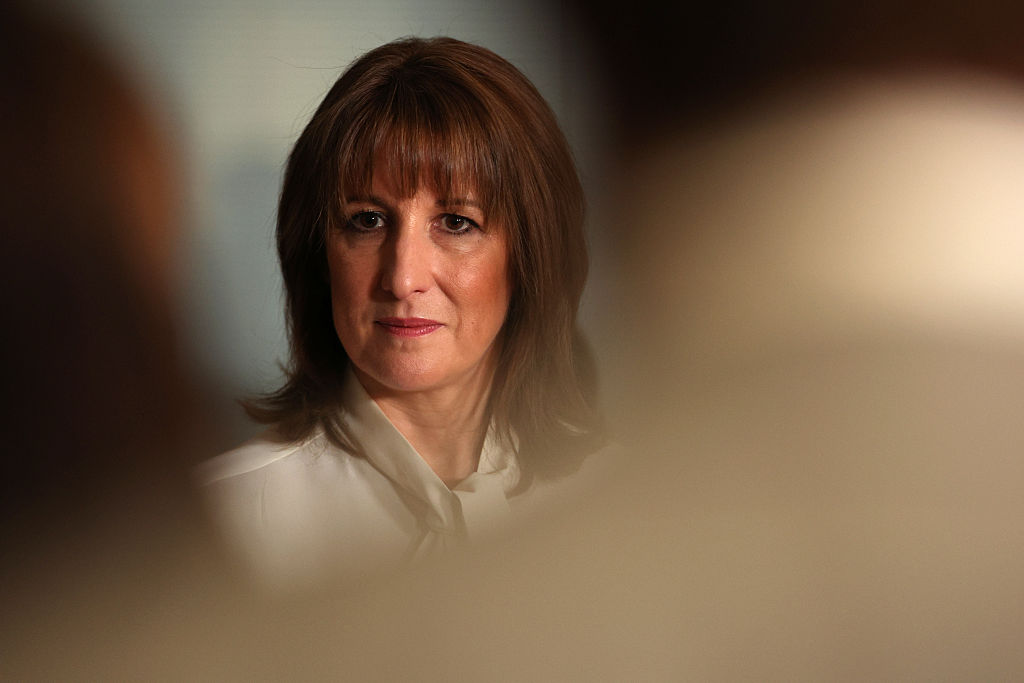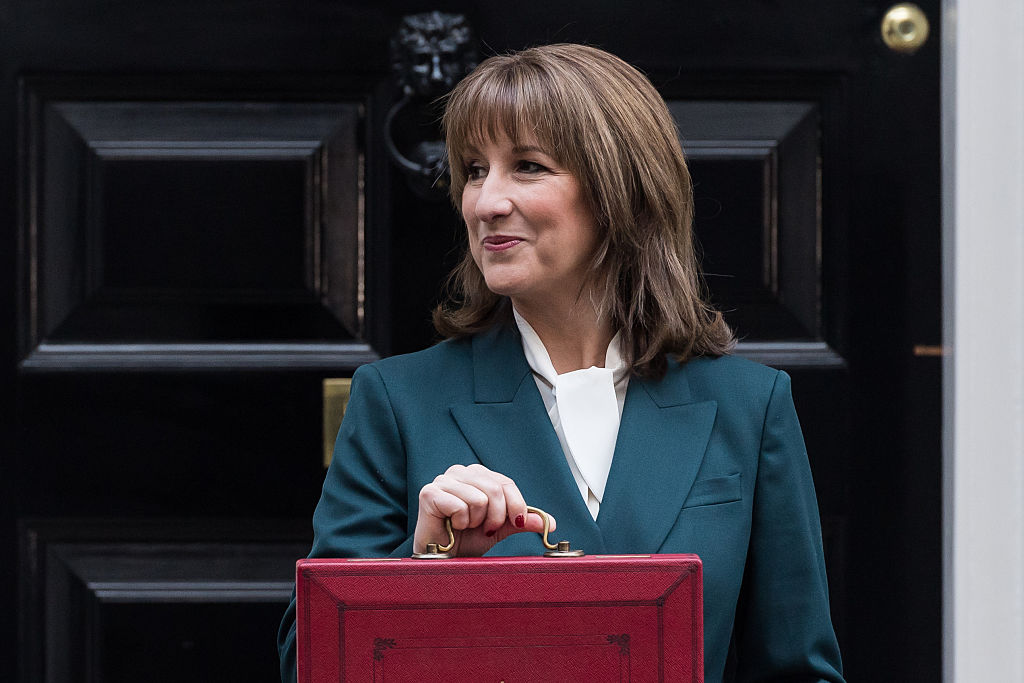Inheritance tax to apply on pensions even if you die before age 55 – 'unbelievably unfair'
Pension savers who die before the minimum pension age will see their pots subject to inheritance tax, in addition to those above 55, the Treasury has confirmed. Experts warn this could put people off saving for retirement and “risks eroding trust in the pension system”


Get the latest financial news, insights and expert analysis from our award-winning MoneyWeek team, to help you understand what really matters when it comes to your finances.
You are now subscribed
Your newsletter sign-up was successful
Want to add more newsletters?

Twice daily
MoneyWeek
Get the latest financial news, insights and expert analysis from our award-winning MoneyWeek team, to help you understand what really matters when it comes to your finances.

Four times a week
Look After My Bills
Sign up to our free money-saving newsletter, filled with the latest news and expert advice to help you find the best tips and deals for managing your bills. Start saving today!
Pension savers who die before the minimum pension age – currently 55 but rising to 57 in 2028 – will see their pots subject to inheritance tax, the Treasury has confirmed.
Chancellor Rachel Reeves previously announced in her Autumn Budget that pension savings would become liable for inheritance tax from April 2027.
While the policy change attracted criticism, the focus had been on how retirees would be affected by this rule change, and how they may wish to spend their pensions to avoid the taxman taking a slice of up to 40% when they die.
MoneyWeek
Subscribe to MoneyWeek today and get your first six magazine issues absolutely FREE

Sign up to Money Morning
Don't miss the latest investment and personal finances news, market analysis, plus money-saving tips with our free twice-daily newsletter
Don't miss the latest investment and personal finances news, market analysis, plus money-saving tips with our free twice-daily newsletter
However, it has now emerged that the pots of savers who die before they’re old enough to access their pensions will also be subject to inheritance tax (IHT) when the new rules are introduced in April 2027.
Will applying inheritance tax on pensions stop people saving for retirement?
Experts say this is “unfair”, and that it may mean some people stop saving for retirement, worsening the pensions crisis. Last month, the government said it was relaunching the Pensions Commission to look at how to encourage more people to save for old age, as it warned that 45% of working-age adults do not save into a pension.
Caitlin Southalla, a director of pensions and tax firm WBR Group, comments: “Including ‘unused’ pension funds [before age 55] in scope for IHT is unbelievably unfair. If people cannot ‘use’ these funds under current rules, why should they be subject to IHT?
“The government is creating significant barriers for people to save responsibly for their retirement. By all means encourage people to use pensions for later life saving, and not as a wealth transfer tool, but this is not the way to do it.”
Carina Chambers, technical pensions expert at digital wealth manager Moneyfarm, also thinks it’s unfair.
She tells MoneyWeek: "The government’s confirmation that inheritance tax will apply to pension pots of individuals who die before reaching the age of 55 is concerning and fundamentally unfair.
“These are not 'unused pensions', they are savings that individuals were legally unable to access. Penalising families in cases of early death or life-limiting illness is not only unjust, but it also undermines the principles of long-term financial planning.”
According to Chambers, if people fear their savings will be taxed simply because they didn’t live long enough to use them, they may stop saving altogether. “This is a dangerous precedent that risks eroding trust in the pension system,” she comments.
The new rules, coming into effect in less than two years, mean pension pots will be added to someone’s estate regardless of when they die, and IHT of up to 40% could be due depending on the size of the estate. The standard inheritance tax threshold, below which IHT isn’t normally payable, is £325,000, although this can be increased.
Currently, pension funds can typically be passed on free of inheritance tax. Some people choose to use other assets and income streams to fund retirement, and keep their pension savings to pass onto loved ones and avoid IHT.
The Treasury says of the new rules: “We continue to incentivise pensions savings for their intended purpose – of funding retirement instead of them being openly used as a vehicle to transfer wealth – and more than 90% of estates each year will continue to pay no inheritance tax after these and other changes.”
However, the number of families paying IHT has been rising over the past few years. About 3,700 more deaths resulted in inheritance tax in 2022-2023, according to the latest figures from HMRC. This brings the total to 31,500 IHT-paying estates, an increase of 13% on the previous year.
The proportion of deaths liable for IHT has grown to 4.62% – but this is predicted to double by the end of the decade to 9.5% due to the IHT reforms, which also include changes for farmers and business owners.
James Jones-Tinsley, self-invested pensions technical specialist at the consultancy Barnett Waddingham, says pension savers aged under 55 are unlikely to have estates that breach the nil-rate band (the tax-free allowance for IHT).
He explains: “It's reasonable to expect that the younger an individual is; in most cases it is less likely their estate value would exceed the £325,000 nil-rate band. And if they are married or in a civil partnership, then if their assets pass to their surviving spouse or civil partner, they'd have no IHT payable."
However, he adds that “what sticks out in the mud” is that savers “cannot physically access their pension pot before the age of 55 (with some, usually occupation-based, exceptions). Therefore the ability to ‘make use of’ or purposefully redirect that pension fund prior to their death, does not exist”.
Jones-Tinsley says it’s “somewhat unfair” to financially punish an individual who dies earlier than expected, “when they had no personal control over what to do with their pension assets prior to the normal minimum pension age – other than to complete an ‘expression of wish’ form."
Experts warn that the new post-April 2027 landscape could be difficult for people inheriting estates that include pensions.
According to Gareth Davies, pension specialist at Scottish Widows, any IHT charges will add another layer of complexity for those already dealing with the death of a loved one.
He notes: "From calculating the new potential IHT liability once a pension is included, to updating death benefit nomination forms and considering the value of protection policies to mitigate the tax bill – people will need to address these necessities much sooner under the new changes.
“Pension savers may also want to consider consolidating their pots, if appropriate, to cut the admin burden when these changes kick in.”
Get the latest financial news, insights and expert analysis from our award-winning MoneyWeek team, to help you understand what really matters when it comes to your finances.

Ruth is an award-winning financial journalist with more than 15 years' experience of working on national newspapers, websites and specialist magazines.
She is passionate about helping people feel more confident about their finances. She was previously editor of Times Money Mentor, and prior to that was deputy Money editor at The Sunday Times.
A multi-award winning journalist, Ruth started her career on a pensions magazine at the FT Group, and has also worked at Money Observer and Money Advice Service.
Outside of work, she is a mum to two young children, while also serving as a magistrate and an NHS volunteer.
-
 Should you buy an active ETF?
Should you buy an active ETF?ETFs are often mischaracterised as passive products, but they can be a convenient way to add active management to your portfolio
-
 Power up your pension before 5 April – easy ways to save before the tax year end
Power up your pension before 5 April – easy ways to save before the tax year endWith the end of the tax year looming, pension savers currently have a window to review and maximise what’s going into their retirement funds – we look at how
-
 Rachel Reeves is rediscovering the Laffer curve
Rachel Reeves is rediscovering the Laffer curveOpinion If you keep raising taxes, at some point, you start to bring in less revenue. Rachel Reeves has shown the way, says Matthew Lynn
-
 Investing in forestry: a tax-efficient way to grow your wealth
Investing in forestry: a tax-efficient way to grow your wealthRecord sums are pouring into forestry funds. It makes sense to join the rush, says David Prosser
-
 'Expect more policy U-turns from Keir Starmer'
'Expect more policy U-turns from Keir Starmer'Opinion Keir Starmer’s government quickly changes its mind as soon as it runs into any opposition. It isn't hard to work out where the next U-turns will come from
-
 Rachel Reeves's punishing rise in business rates will crush the British economy
Rachel Reeves's punishing rise in business rates will crush the British economyOpinion By piling more and more stealth taxes onto businesses, the government is repeating exactly the same mistake of its first Budget, says Matthew Lynn
-
 The consequences of the Autumn Budget – and what it means for the UK economy
The consequences of the Autumn Budget – and what it means for the UK economyOpinion A directionless and floundering government has ducked the hard choices at the Autumn Budget, says Simon Wilson
-
 Why UK stocks are set to boom
Why UK stocks are set to boomOpinion Despite Labour, there is scope for UK stocks to make more gains in the years ahead, says Max King
-
 Electric vehicle drivers to be charged new per mile tax from 2028
Electric vehicle drivers to be charged new per mile tax from 2028Electric vehicle drivers will be forced to pay a 3p per mile tax, as taxation will be brought closer in line with petrol and diesel cars
-
 Salary sacrifice cap of £2,000 to be introduced in 2029
Salary sacrifice cap of £2,000 to be introduced in 2029The government says 74% of basic rate taxpayers currently using salary sacrifice will be unaffected by the change